The lingering effects of long COVID: Domb hosts second briefing on the topic
| Published: 06-25-2024 7:21 PM |
It knocked Netia McCray out of work for two years, and it took all of that time for doctors to give her an official diagnosis — she was suffering from long COVID.
McCray, the director of Mbadika, a Boston nonprofit that provides resources for students pursuing careers in science, technology, engineering and math, told those gathered at a virtual briefing on long COVID held by state Rep. Mindy Domb, D-Amherst, on Tuesday that the illness impacted other aspects of her daily life beyond her work. Though she had parents in the medical field who were able to help her navigate the process and a husband who was able to financially support her during that time, she noted that most commonwealth residents aren’t so lucky.
“You’re not only having the functional limitations that come with the symptoms, but you don’t know when you’re going to be able to do X, Y and Z for your job or your home or personal life,” McCray said. “The impact to day-to-day life is associated with a higher prevalence of housing insecurity. And given the state of the commonwealth of Massachusetts and housing insecurity status already, this is probably one of the greatest threats and fears we hear from patients day in and day out over the last four years.”
Domb called the virtual briefing — the second such gathering this year — to hear what public health officials and health care administrators had to say about the lingering effects of long COVID on Massachusetts residents and what the state could do to address inequalities that result from it.
Domb cited a recently published definition of the term “long COVID” by the National Academies of Sciences, Engineering, and Medicine that defines it as “an infection related chronic condition that occurs after COVID-19 and remains present for at least three months as a continuing relapsing and remitting or progressive disease state that affects one or more organ systems.”
Domb said that having a proper definition for the term was essential to increase awareness and to facilitate knowledge and treatment of the condition.
“Most notably, the proposed universal definition did not and does not require laboratory confirmation and other proof of initial infection,” Domb said. “This development is huge and reveals many possibilities for governmental and non-governmental action.”
In addition to sharing her personal story, McCray cited census figures that showed that one in 10 of those who have had been diagnosed with COVID-19 exhibited symptoms of long COVID, such as shortness of breath, cognitive dysfunction and physical disability.
Article continues after...
Yesterday's Most Read Articles
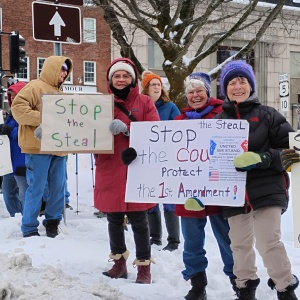 Local ‘Hands Off!’ standouts planned as part of national effort
Local ‘Hands Off!’ standouts planned as part of national effort
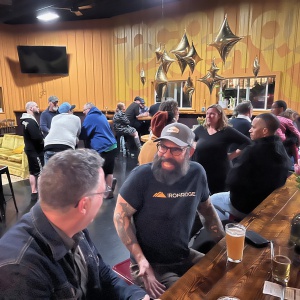 Incandescent Brewing now open in Bernardston
Incandescent Brewing now open in Bernardston
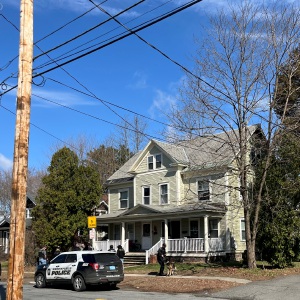 Two arrested on drug trafficking charges in Greenfield
Two arrested on drug trafficking charges in Greenfield
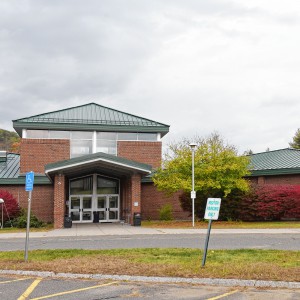 Berkshire DA says no crime occurred in student-officer relationship at Mohawk Trail
Berkshire DA says no crime occurred in student-officer relationship at Mohawk Trail
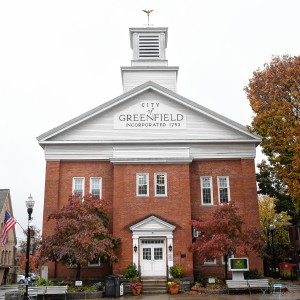 Proposed ordinance would make Greenfield a ‘sanctuary city’ for trans, gender-diverse people
Proposed ordinance would make Greenfield a ‘sanctuary city’ for trans, gender-diverse people
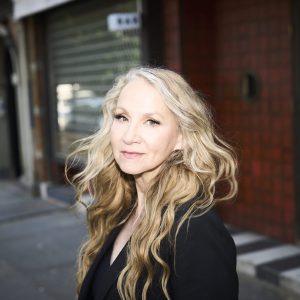 Sounds Local: A legend pays tribute to an icon: Seven-time Grammy-nominated Joan Osborne brings Bob Dylan repertoire to Shea Theater
Sounds Local: A legend pays tribute to an icon: Seven-time Grammy-nominated Joan Osborne brings Bob Dylan repertoire to Shea Theater
According to the Centers for Disease Control and Prevention, around 18% of all adults in the U.S. have experienced some form of long COVID since the start of the pandemic, with 15% of all Massachusetts adults having had symptoms of long COVID.
McCray also cited statistics on the ongoing labor shortage and that more than half of Americans have less than $1,000 in savings, problems McCray said have been exacerbated by long COVID.
“If you have lived in this area for any length of time, a $1,000 emergency is a generous emergency,” McCray said. “That is not having to take one month off from work … (it’s) having to pay a health insurance premium or even groceries for the majority of individuals in the commonwealth.”
Michael Curry, president and CEO of the Massachusetts League of Community Health Centers, said that the effects of long COVID disproportionately affect people of color, who already face inequities in access to health care, and called for action to address the disparity. Curry cited an omnibus health bill in the State House that would expand coverage of state-provided MassHealth insurance.
“Massachusetts leads on many aspects of health care, but there’s still a lot we need to do to improve access and quality of care. Health insurance coverage is critical for individuals to be able to access care when they need it, and not to defer care,” he said. “This bill would extend the full mass health coverage to all who are eligible, including children, regardless of immigration status.”
Linda Sprague Martinez, a professor at the University of Connecticut and director of the health disparities institute at UConn Health, also called on Massachusetts to adopt a measure that would guarantee paid time off, which would allow them to seek care without worry of losing their job.
“COVID care is not just one appointment, it is multiple appointments with multiple specialists,” Martinez said. “Employers need to understand long COVID, our unions need to understand long COVID, what it is and how it could be impacting workers. School districts need to understand long COVID because children can also have long COVID.”
Alexander MacDougall can be reached at amacdougall@gazettenet.com.








 New panel to review senior housing proposals in Deerfield
New panel to review senior housing proposals in Deerfield Shutesbury reviewing how to improve safety on Lake Wyola in wake of accident last summer
Shutesbury reviewing how to improve safety on Lake Wyola in wake of accident last summer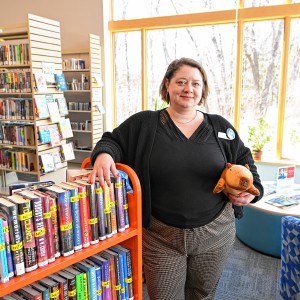 Local libraries react to state funding cuts, federal administrative leave
Local libraries react to state funding cuts, federal administrative leave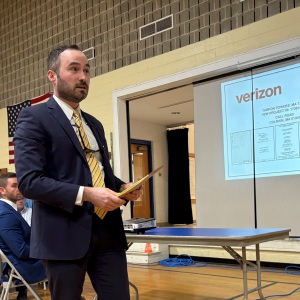 Colrain zoning board approves variance for Call Road cell tower
Colrain zoning board approves variance for Call Road cell tower
